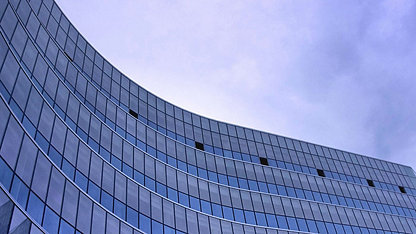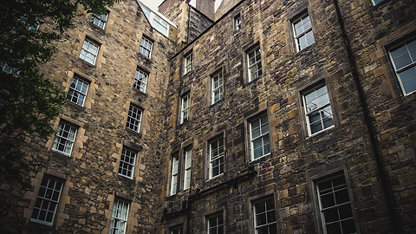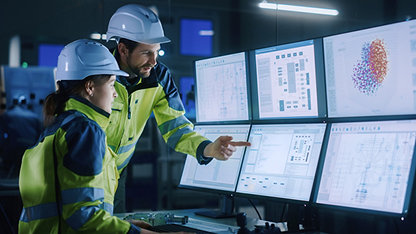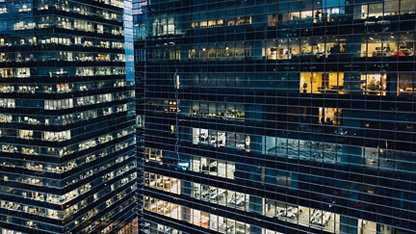Working from home is not ideal for all who need or prefer an office environment. But lockdown has revealed a significant number who have found working from home to be beneficial while employers, given no other choice, have realised that home-based staff can arguably improve, or at least maintain, their productivity.
But as part of re-opening the economy, there will be changes to our working environments to accommodate those who must be in the office to do their jobs. The question is: how do we facilitate that process safely?
Referencing the British Council for Offices’ COVID-19 BCO Briefing Paper, published on 29 April, and multiple permutations of two-metre office guidance, we are going to see a host of changes for employees and employers to feel confident for a return to happen. These may include automatic controls avoiding the need to contact surfaces, clear routes throughout the building avoiding congregation of large numbers of people and potential bottlenecks, a lower occupational density, a move away from desk sharing, touch free devices and improved mechanical ventilation systems.
We are also going to have to be much more “mindful” at work; it seems inevitable that office space will take on a different role in this new world.
Faced with some risk, the workplace we return to will differ from what we once knew. It will need to adapt with employees and employers focusing on what they want from offices, beyond housing so many thousands of bodies. A new purpose could entail conveying an identity, helping with knowledge sharing, staff interaction and team building, or otherwise aiding productivity.
A recent movers and shakers talk from Ben Page at global market research company IPSOS, suggested global values change much less quickly than we think they do. While it may feel like the current pandemic is apocalyptic and will change the world as we know it, our underlying values, such as concerns around inequality, the fragility of our planet and the desire for a slower pace of life broadly align with the values we held in 1990 and are likely to remain post-pandemic.
Is it possible that the jolt we are experiencing will act as a catalyst for change in line with these beliefs? For example, will the dramatic decrease in carbon emissions since lockdown return to former levels, and would this be defensible in light of vocal activism and commitments to net-zero carbon targets?
“While it may feel like the current pandemic is apocalyptic and will change the world as we know it, our underlying values, such as concerns around inequality, the fragility of our planet and the desire for a slower pace of life broadly align with the values we held in 1990 and are likely to remain post-pandemic. ”
New technology
The trend towards embracing proptech shows no signs of slowing down. For TFT this meant adopting cloud-based data management and video conferencing systems to facilitate our team collaboration across the nation. This enabled a fairly seamless transition from office to home working under lockdown conditions. As this becomes standard practice, available resources and tools will only be limited by one’s internet connection speeds. Given that full fibre broadband across the UK was a manifesto pledge of the Conservative Party in 2019, this issue should be addressed by 2025, if not sooner.
Although ‘video fatigue’ is often cited, video calls have undoubtedly been a success with Zoom, Houseparty and Microsoft Teams becoming firm favourites in a short amount of time.
Perhaps a national trend towards caring and community and a need to stay in touch under lockdown will extend beyond the pandemic. But it is also easy to collaborate, share and problem solve on these platforms in a way we once had to travel for. The physical TFT Friday beer trolley in my office in Bristol has been replaced with a Zoom call with colleagues, family, and pets.
The construction industry, guided by Alok Sharma, the Secretary of State for Business, Energy and Industrial Strategy, has been encouraged to remain open since 31 March. Under the guidance of the Construction Leadership Council, reasonable measures have been recommended to continue construction works. These measures will evolve just like new measures for offices.
Already, as companies adapt quickly, our service lines are maximising provisions to help clients and keep the economy turning, without visiting site. TFT launched the technical due diligence two stage survey service, emphasising the (stage 1) desktop review followed by a final (stage 2) inspection which enables early insight and assists the conveyancing process. This follows an emphasis on the importance of electronic data and record keeping, which was a key recommendation under the Hackitt review following the Grenfell fire.
“Already, as companies adapt quickly, our service lines are maximising provisions to help clients and keep the economy turning, without visiting site. ”
Site inspections are of course integral to building surveying, and the insight and security we offer our clients by doing these will return in time. But how inspections are undertaken will change in the short to medium term.
TFT has set out detailed procedures for site visits under current restrictions with each case requiring a thorough risk assessment and suitable personal protective equipment. But we will continue to use video calls, recorded videos, and photographic records to monitor construction works where physical attendance is not possible.
This is where our shared adoption of new technology and new mindsets can come together to help our industry adapt to give our clients and our staff the best outcomes. There are certainly opportunities as well as challenges during this difficult time. Stay safe everyone.
- Jay Ridings is a senior associate at TFT and a member of RICS Built Environment Journal’s building surveying editorial advisory group: jridings@tftconsultants.com













